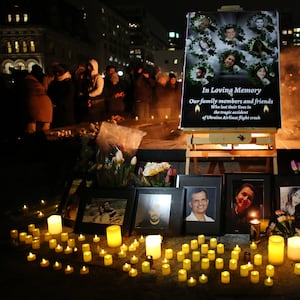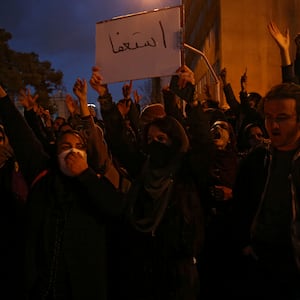MOSCOW—The balance of power in the Middle East is shifting. German Chancellor Angela Merkel arrived in Moscow on Saturday to discuss the crises there with President Vladimir Putin and try to save what’s left of the Iran nuclear deal.
In spite of U.S. President Donald Trump’s calls to put “maximum pressure” on Iran’s “bad deal,” Merkel said everything should be done to keep the agreement.
And Russian politicians gloated: “This is remarkable, at the peak of the pre-war crises around Iran, Merkel is coming to Putin and not to Trump. Negotiations with Trump would make no sense, he would just repeat his statements,” Senator Aleksey Pushkov told Russian news agencies.
Whoever has American bases on their territory (including Germany) should pay attention to Washington threatening Iraq with severe sanctions, Chair of the Federation Council Committee of Foreign Policy Konstantin Kosachev said: “Alliances with the USA might look romantic, devoted to values, peace and democracy but only on the surface.”
Nobody can imagine a Putin-Trump alliance in the conflict with Iran. In most of the Middle East’s conflicts, Moscow and Washington back forces on different sides of the front lines. Moscow blamed Washington for not making an alliance in Syria to back up the dictator Bashar Assad while Moscow builds up its Tartus, Khmeimim and Tiyas military bases there. “I can see Russia deploying military experts now both to Iran and to Iraq,” pro-Kremlin political analyst Sergei Markov told The Daily Beast.
“Russia’s general strategy is to continue strengthening its uniquely strong alliances in the region with Iran, Israel, Turkey, Syria, Libya, Saudi Arabia and Qatar,” said Markov. “We should be careful taking responsibilities though, especially with Iran, who we are told can be slippery when it comes to sticking to agreements.” In sum, said Markov, “We should benefit from U.S.-Iran tensions.”
In the last six years Moscow has been taking part in military conflicts in Ukraine and Syria, with the excuse of defending Russians on the ground. “We don’t know if there are Russian officers and engineers on the ground in Iran; if there are this is situation might grow uglier,” Moscow based military analyst, Alexander Golts told The Daily Beast.
“America has Started a War,” the popular television channel NTV informed Russians in the headline on the Orthodox Christmas eve. The major state newspaper, Rossiyskaya Gazeta, reported that the Russian minister of defense, Sergei Shoigu, spoke with Iranian military commandership and intelligence several times on Monday to prevent “the escalation of tensions” mainly in pro-Iranian Syria, where Russia has thousands of soldiers on the ground. No more details were revealed.
The Kremlin is using the opportunity to say repeatedly in one way or another, “See, didn’t we tell you America cannot be trusted?” and emphasize Russia’s “unique” role in the Middle East.
In fact, during the years of war in Syria, Russia has become Iran’s major military ally, but so far the Kremlin has not given any indications of Russia’s plans to to fight on Tehran’s side in case of a direct military conflict with the U.S..
“Nobody knows if Shoigu told Teheran not to count on Moscow or if he promised Iran Russia’s support,” said military analyst Golts told The Daily Beast. When the U.S. aviation attacked Syria, Russia demonstrated two types of reactions: ignored the attacks and threatened “retaliatory measures both on missiles and carriers that will use them.“
If a war begins in Iran, the U.S. might strike Russia’s four S-300 missile systems, Golts says. “And then the key question would be whether Russia is going to use its S-400 and other missile systems deployed to its Khmeimim air base base in Syria.”
On Tuesday Russian leader Vladimir Putin flew to Russian military bases in Syria to discuss “the fight against terrorism” with Assad. Putin speaks with authoritarian leaders in the Middle East and Western Asia from a position of money and power, just as Trump does, but unlike Trump, Putin manages to build alliances in the region.
Earlier last week Putin visited Istanbul, where he opened a $7,8 billion pipeline, TurkStream. When German Chancellor Angela Merkel went to Moscow to discuss the crisis over the Soleimani assassination her government’s spokesperson says Russia is “indispensable” when it comes to solving political conflicts.
Few people are saying that about Trump.








